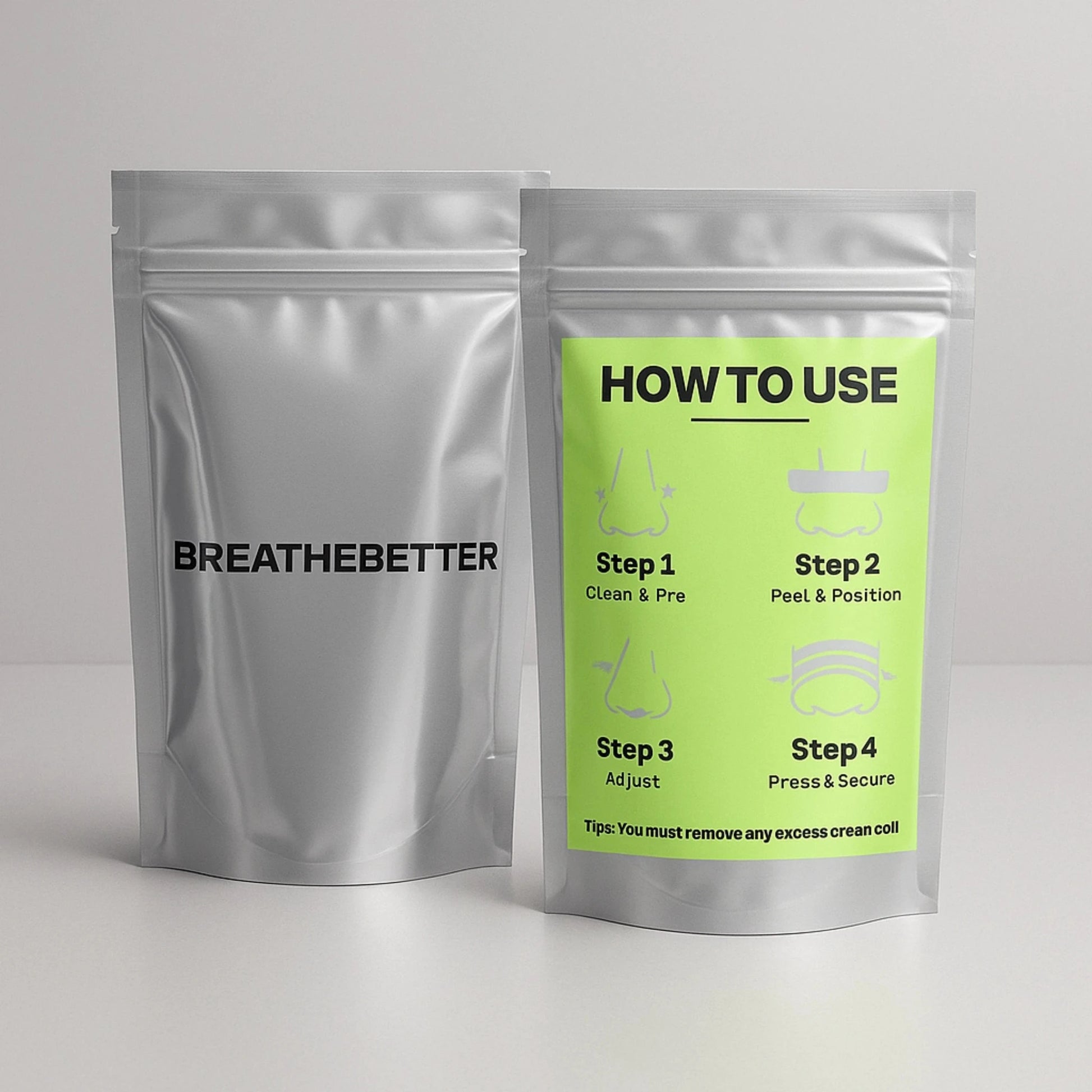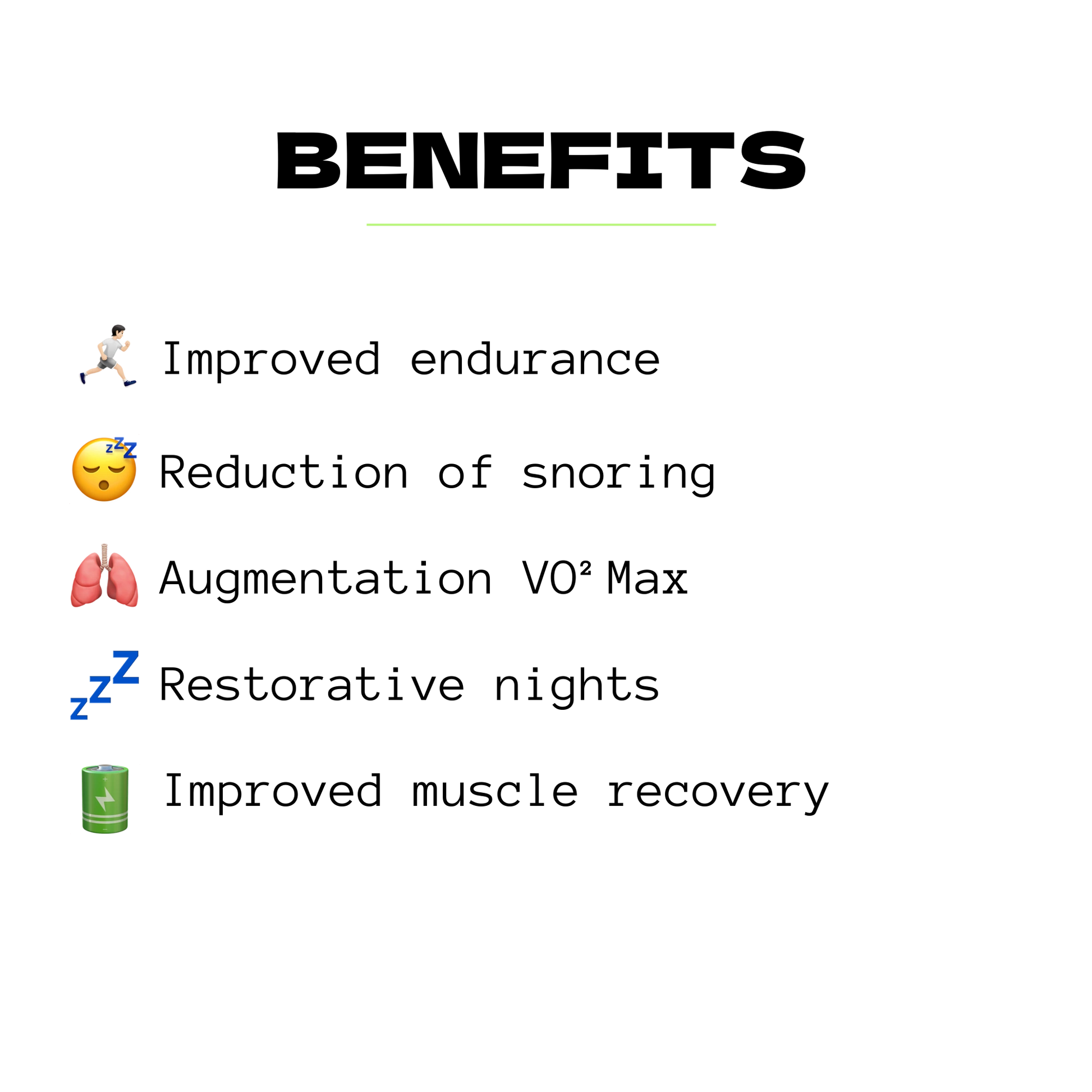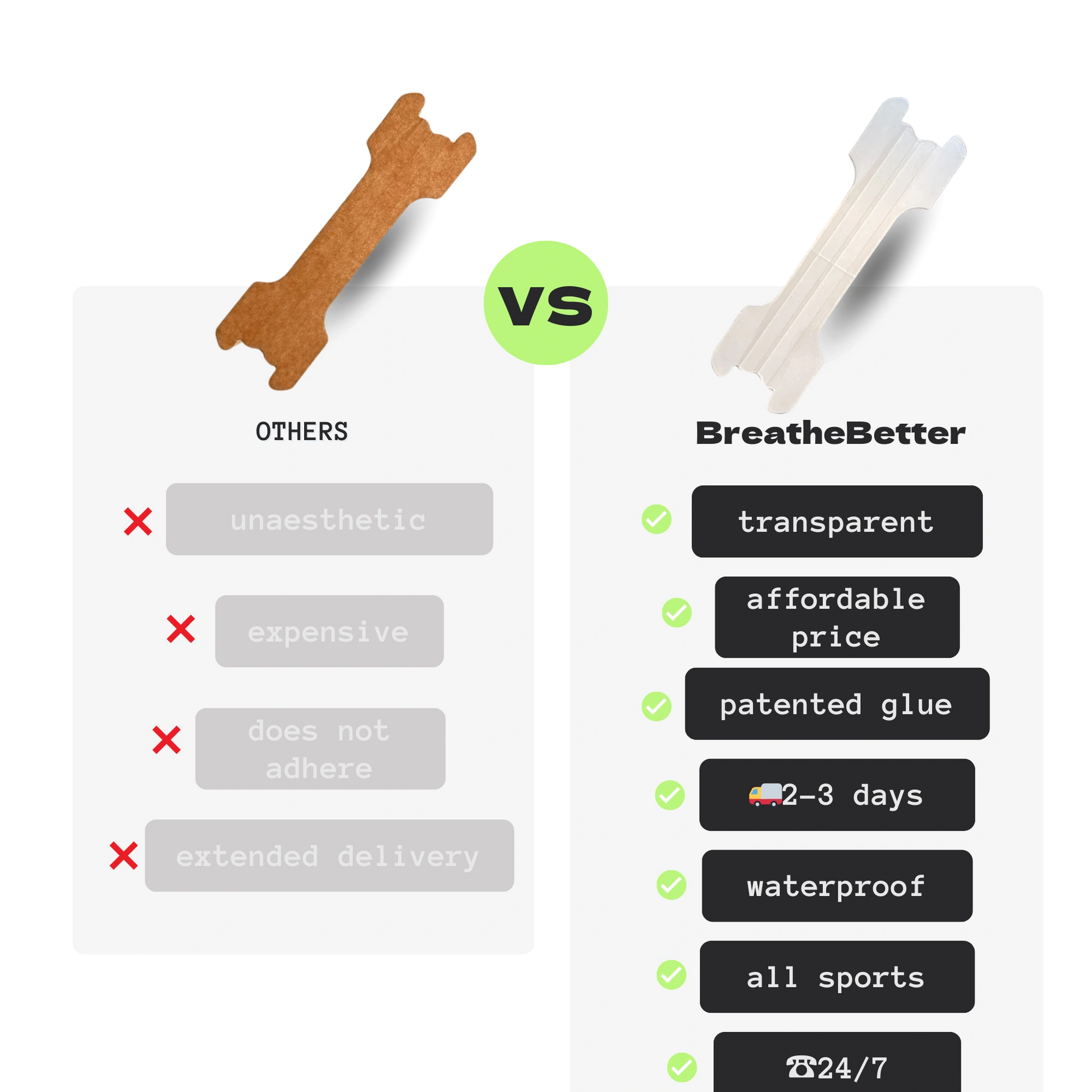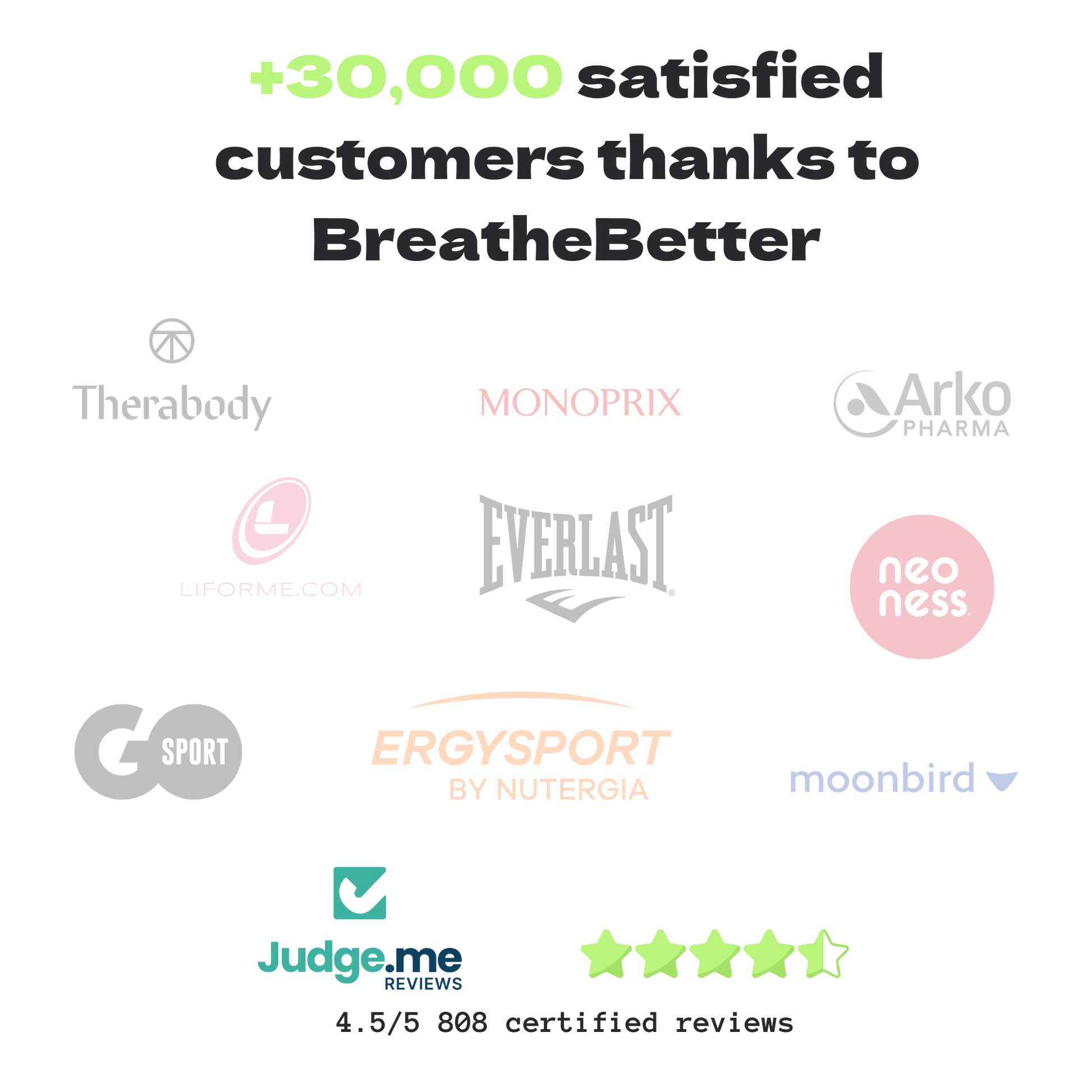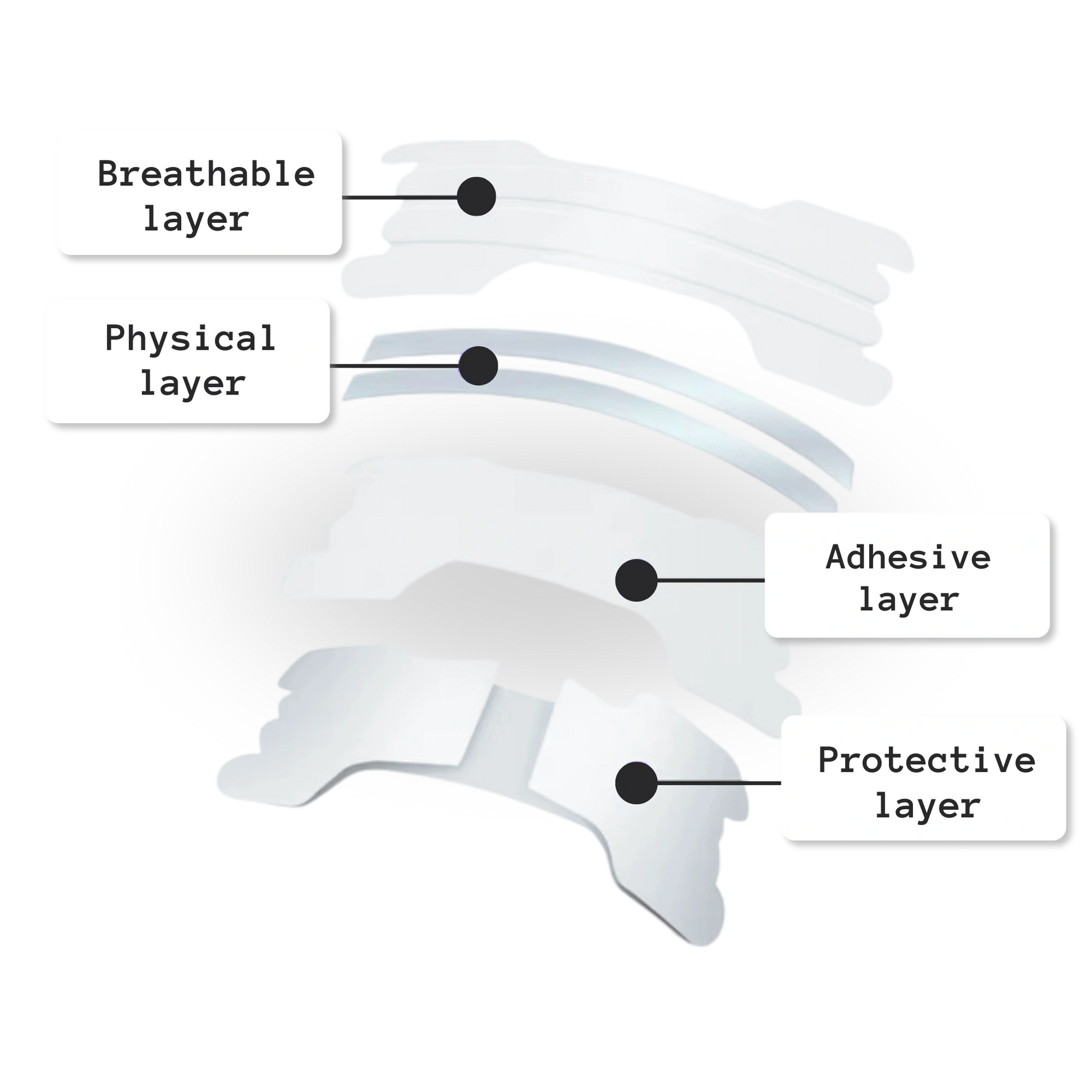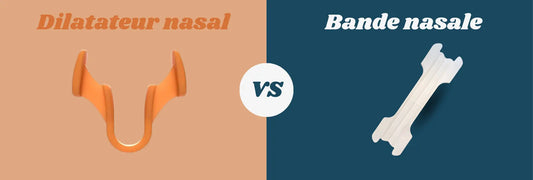Stress is a part of everyday life, especially at work. While it can be a short-term productivity booster, when it becomes too intense or chronic, it has a significant impact on breathing and the ability to stay focused. Indeed, when you are stressed, your body reacts by changing your breathing rhythm, often by breathing faster and more shallowly. This prevents your body from staying relaxed and can decrease your productivity. But how can you manage this stress and find balance to stay calm and focused throughout the day? Let's discover simple and natural solutions to achieve this.
Stress and breathing: a direct link
When you’re stressed, your body activates an automatic response, the sympathetic nervous system, known as the “fight or flight response.” This causes your breathing to increase and your heart rate to increase. This rapid, shallow breathing leads to poor oxygenation of the body, which can both increase muscle tension and reduce the effectiveness of your immune system. In the long term, poor breathing related to stress can worsen health problems and make it even harder to manage stress. In contrast, breathing slowly and deeply stimulates the parasympathetic nervous system, which helps relax the body, reduce stress, and improve focus. That’s why learning to control your breathing is crucial to counteract the negative effects of stress.
If you are wondering Nasal vs. Oral Breathing: Which One to Adopt? This article is for you: Nasal vs. Oral Breathing: Why Should You Favor Breathing Through Your Nose?
Reducing stress at work: simple and natural solutions
There are several natural and effective methods to reduce stress and improve your productivity at work. One of the simplest and most accessible is deep breathing. Taking a few minutes to breathe deeply, slowly inhaling through your nose and exhaling through your mouth, can have immediate effects on stress reduction. This technique helps to slow your heart rate and lower your levels of cortisol, the stress hormone. Meditation and relaxation exercises are also very beneficial, as they promote a state of calm and concentration. Taking short regular breaks to practice deep breathing or simply stepping away from your desk to relax for a few moments can also make a big difference in your stress management. Yoga is another increasingly popular practice, which combines gentle physical exercise and conscious breathing to promote deep relaxation.
Breathing as a tool for productivity and concentration
To improve your productivity at work, it is crucial to maintain a good level of concentration. However, this is difficult to achieve when you are constantly distracted by stress. Conscious breathing is an excellent way to regain this concentration. By practicing nasal breathing, you promote a better passage of air in your respiratory tract, which allows you to better oxygenate your brain and maintain a high level of concentration. For example, you can integrate the practice of deep breathing during your meetings or during stressful moments, taking a few moments to refocus before answering an email or making important decisions. This will not only help you stay calm, but also be more responsive and efficient.
For those who have difficulty breathing properly under stress, BreatheBetter nasal strips can be an effective solution. They help optimize the passage of air through the airways, promoting smoother breathing and better oxygenation of the brain.
Create a long-term anti-stress routine
To make stress management a habit and not a one-time solution, it’s essential to establish an anti-stress routine. Incorporating moments of deep breathing into your day can reduce the impact of stress and promote overall well-being. Whether at the beginning of the day to get you started, or at the end of the day to release accumulated pressure, these breathing breaks are beneficial. In addition to this, it’s recommended to get enough sleep, eat a balanced diet, and integrate regular physical activity into your schedule to maintain optimal stress management. It’s also helpful to avoid digital distractions and practice mindfulness to strengthen your ability to stay present and focused.



